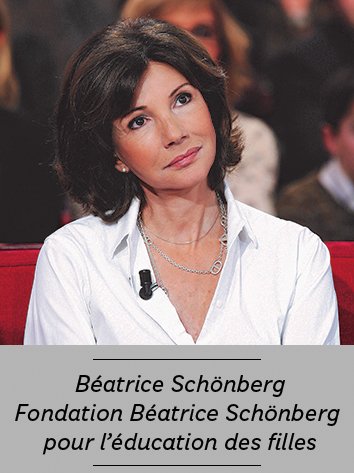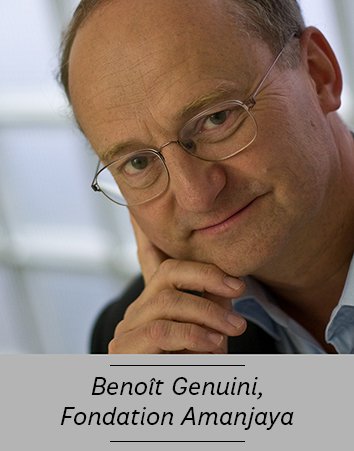Education for all: A closer look at the activities of two donor-advised funds
It’s one of the most ambitious sustainable development goals: ensuring that by 2030 all children, all over the world, attend primary and secondary school. And that they can then access higher education and professional training, the magic formula for finding a place in society. A closer look at the activities of two donor-advised funds: Fondation Béatrice Schönberg Pour l’Education des Filles (Béatrice Schönberg Foundation for the Education of Girls), and Fondation Amanjaya, which work to make education accessible to all.
The evidence is everywhere: when a child does not acquire the basic skills they need to become a citizen of the world, not only they, but the social fabric, suffers. While there has been significant progress over the last few decades, particularly in educating girls (in 2015, three out of four girls were in school in developing countries), disparities still exist. As does the risk that yesterday’s inequalities will return one day.
At Fondation de France, 371 donor-advised funds are committed to this issue. Some of them work to make it easier for the most underprivileged children to have access to education, for example by opening schools for them or funding professional apprenticeship programs. Others are dedicated to creating favorable conditions for education: housing, health, etc. Each in their own way and in different countries, the Béatrice Schönberg Pour l’Education des Filles and Amanjaya foundations, act to encourage quality education for everyone.
“Boarding school, the missing link”

“For girls, education is a means of emancipation and development. So for me, the obvious choice was to take interest in the girls who live in Morocco, a country close to my heart, at the base of the foothills of the Atlas mountains. After attending primary school in the douars, the Moroccan villages, they stop their education, and often are then required to marry at 13 years old. To change that situation, and to ease their parents’ concerns, which often have to do with distance and dangers of the roads leading to school, in 2014 I created, along with my foundation, study centers where students are housed all week, like in a boarding school. First, with the help of a local nonprofit, we housed 50 girls, then we welcomed 50 more to our ‘campus’ that we opened this spring in Asni. A space that indicates our long-term commitment, as we will support these young girls for seven years, all the way to the baccalaureate exam (100% passed last year), and then to the doors of the university. Today, all our bachelors are studying at institutes of higher learning in Fès, Marrakech … and even Paris!”
“Everything to have a career in hand”

“In many developing countries, inequalities start at an early age and it becomes impossible to escape one’s original social status. But if you give someone the means to get an education, linking schooling to an open mind, you allow young children from underprivileged backgrounds to become free and responsible young adults. That is my commitment, as well as that of Alain Goyé with whom I founded Amanjaya in 2008. We work in a region that means a lot to us: Southeast Asia. We support well-known local organizations there: Pour un Sourire d’Enfant in Cambodia, Enfants d’Asie in the Philippines, as well as Passerelles Numériques in Vietnam. Among the most recent co-financed projects, including the welcome center to train young people from the Vietnamese high plains, Amanjaya opened a home for street children at Phnom-Penh. It’s a constant struggle: in Cambodia, less than 10% of young people enter professional training or higher education programs.”
TO FIND OUT MORE

